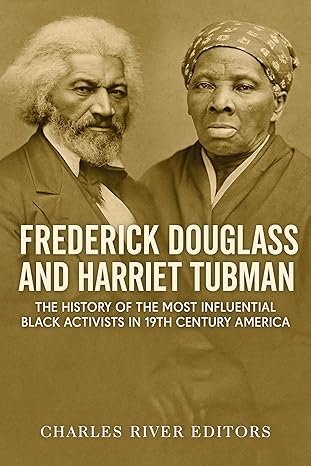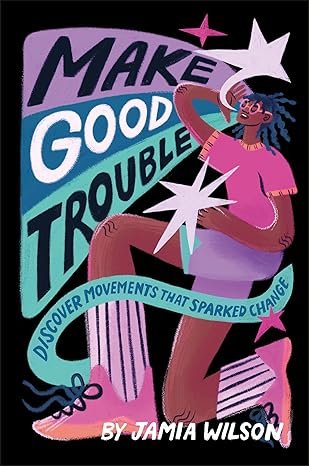 Image 1 of 1
Image 1 of 1


Frederick Douglass and Harriet Tubman 2025
“I was the conductor of the Underground Railroad for eight years, and I can say what most conductors can't say — I never ran my train off the track and I never lost a passenger.” - Harriet Tubman
With the possible exception of Dr. Martin Luther King, Jr., no African American has been more instrumental in the fight for minorities’ civil rights in the United States than Frederick Douglass 1818–1895), an American social reformer, orator, writer and statesman. His list of accomplishments would be impressive enough even without taking into account the fact that he was born into slavery.
Douglass was born into slavery, and it’s believed his father was a white man, even perhaps his master Aaron Anthony. When Douglass was about 12, his slaveowner’s wife, Sophia Auld, began teaching him the alphabet in defiance of the South’s laws against teaching slaves how to read. When her husband Hugh found out, he was furious, reminding her that if the slave learned to read, he would become dissatisfied with his condition and desire freedom. Those words would prove prophetic.
Douglass is noted as saying that "knowledge is the pathway from slavery to freedom,” and he took that advice to heart, teaching himself how to read and write with his knowledge of the alphabet. On September 3, 1838, Douglass successfully escaped slavery, traveling by boat to Delaware, Philadelphia, and finally New York, all in the span of a day. Douglass found a “new world had opened upon me.”
After escaping from slavery, Douglass became a leader of the abolitionist movement, gaining national notice for his dazzling oratory and anti-slavery writing. He stood out as the living embodiment of an intellectual former slave, the antithesis of slaveholders’ arguments that blacks were an inferior race. Douglass remained active in the fight for civil rights and abolition throughout the Civil War and Reconstruction, even meeting President Lincoln and strongly urging him to let black men enlist in the Union. As Douglass constantly stated, nobody had more to fight for in the Civil War than black men.
Douglass continued his work all the way up to his death in 1895, continuing to advocate on behalf of blacks, women, immigrants and even Native Americans. Douglass famously said, "I would unite with anybody to do right and with nobody to do wrong."
Douglass remains well known today, but given the manner in which Jim Crow segregated and discriminated against minorities for another 60 years after his death, he is often overshadowed by the icons of the Civil Rights Movement of the 1950s and 1960s.
Harriet Tubman is one of the most famous women in American history, and from an early age every American learns of her contributions to abolition and the Underground Railroad. The woman who became known as the Moses of her people personally led more than 13 expeditions to free slaves in the South, and she was so integral in helping escaped slaves achieve freedom that her name is practically synonymous with the Underground Railroad today.
If anything, the central role she played in the Underground Railroad has become so ingrained among subsequent generations that Tubman’s life has been shrouded in legend, and other important aspects have been overlooked. In order to fully appreciate and understand both Harriet Tubman’s life and the important role she played in the abolitionist movement, it is necessary to examine the circumstances in which she was raised and what events drove her to the path she chose. Anthropologist Douglas Armstrong notes “[s]o little information about Tubman has been based on fact and so much based on myth and created history” that it has only been recently that historians have “come to the point where we can recognize her true contributions.”
In fact, Tubman’s entire life consisted of struggles and persistence, whether she was fighting on behalf of slaves, the Union army during the Civil War, or women’s rights.
“I was the conductor of the Underground Railroad for eight years, and I can say what most conductors can't say — I never ran my train off the track and I never lost a passenger.” - Harriet Tubman
With the possible exception of Dr. Martin Luther King, Jr., no African American has been more instrumental in the fight for minorities’ civil rights in the United States than Frederick Douglass 1818–1895), an American social reformer, orator, writer and statesman. His list of accomplishments would be impressive enough even without taking into account the fact that he was born into slavery.
Douglass was born into slavery, and it’s believed his father was a white man, even perhaps his master Aaron Anthony. When Douglass was about 12, his slaveowner’s wife, Sophia Auld, began teaching him the alphabet in defiance of the South’s laws against teaching slaves how to read. When her husband Hugh found out, he was furious, reminding her that if the slave learned to read, he would become dissatisfied with his condition and desire freedom. Those words would prove prophetic.
Douglass is noted as saying that "knowledge is the pathway from slavery to freedom,” and he took that advice to heart, teaching himself how to read and write with his knowledge of the alphabet. On September 3, 1838, Douglass successfully escaped slavery, traveling by boat to Delaware, Philadelphia, and finally New York, all in the span of a day. Douglass found a “new world had opened upon me.”
After escaping from slavery, Douglass became a leader of the abolitionist movement, gaining national notice for his dazzling oratory and anti-slavery writing. He stood out as the living embodiment of an intellectual former slave, the antithesis of slaveholders’ arguments that blacks were an inferior race. Douglass remained active in the fight for civil rights and abolition throughout the Civil War and Reconstruction, even meeting President Lincoln and strongly urging him to let black men enlist in the Union. As Douglass constantly stated, nobody had more to fight for in the Civil War than black men.
Douglass continued his work all the way up to his death in 1895, continuing to advocate on behalf of blacks, women, immigrants and even Native Americans. Douglass famously said, "I would unite with anybody to do right and with nobody to do wrong."
Douglass remains well known today, but given the manner in which Jim Crow segregated and discriminated against minorities for another 60 years after his death, he is often overshadowed by the icons of the Civil Rights Movement of the 1950s and 1960s.
Harriet Tubman is one of the most famous women in American history, and from an early age every American learns of her contributions to abolition and the Underground Railroad. The woman who became known as the Moses of her people personally led more than 13 expeditions to free slaves in the South, and she was so integral in helping escaped slaves achieve freedom that her name is practically synonymous with the Underground Railroad today.
If anything, the central role she played in the Underground Railroad has become so ingrained among subsequent generations that Tubman’s life has been shrouded in legend, and other important aspects have been overlooked. In order to fully appreciate and understand both Harriet Tubman’s life and the important role she played in the abolitionist movement, it is necessary to examine the circumstances in which she was raised and what events drove her to the path she chose. Anthropologist Douglas Armstrong notes “[s]o little information about Tubman has been based on fact and so much based on myth and created history” that it has only been recently that historians have “come to the point where we can recognize her true contributions.”
In fact, Tubman’s entire life consisted of struggles and persistence, whether she was fighting on behalf of slaves, the Union army during the Civil War, or women’s rights.
ASIN : B0FCSJSXSL
Publisher : SP
Author: Charles River Editors
Publication date : June 10, 2025
Language : English
Print length : 106 pages
ISBN-13 : 979-8287628857




